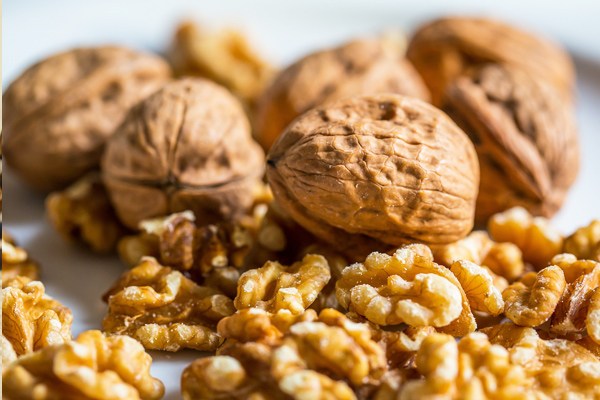Walnut Nutrition Facts:
| Calories in | 100 g |
| Calories , Kcal | 654 kcal |
| Fat | 65 g |
| Carbohydrates | 14 g |
| Protein | 15 g |
Useful properties of walnut
Walnut contains a large number of vitally important vitamins, mineral compounds and organic substances. In kernels of a nut there are aldehydes, essential oils, folic acid. Extraordinary useful properties of walnuts determine the presence of vitamins B, C, PP, carotene, fiber, iron and cobalt compounds. A lot of the listed substances in the unripe walnut, especially in its shell, which, along with the listed ingredients, contains a large number of phenolic carboxylic acids and steroids.
Walnut kernels are filled with magnesium and potassium compounds, which have diuretic and vasodilating properties. The presence of these minerals determines the high hypotensiveness of walnut kernels, that is, in simple terms, walnuts are very useful in that they quickly reduce blood pressure.
In the walnut, vitamin C contains an order of magnitude more than in citrus fruits. Walnut helps to strengthen the muscles and quickly restores the person after doing hard physical work, removing the feeling of fatigue. Among other things, the walnut is indispensable in getting rid of constipation and normalization of the stomach.
Walnut is almost two-thirds fat. Nevertheless, when it is used, the amount of fat in the bloodstream decreases.

